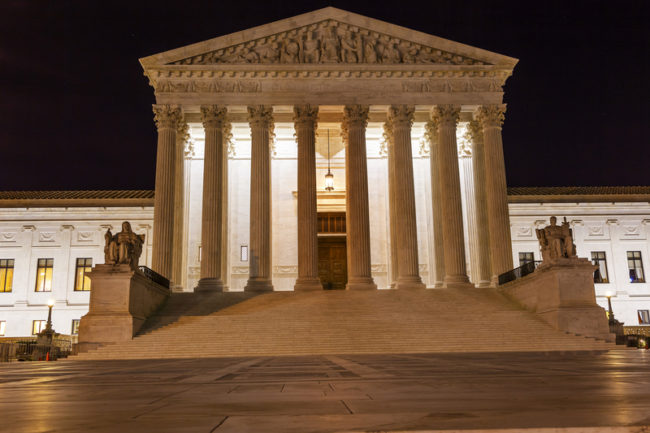
Many around the world are viewing the bitter battle over Judge Amy Coney Barrett’s confirmation as a Justice of the Supreme Court with amazement because the highest courts in most European and other democracies are rarely hotbeds of political intrigue.
Barret has judicial scholarship as any top judge should, but the defining elements of her nomination are her arch conservatism and deep roots in Christian values, particularly those of the Roman Catholic faith.
A reputation for such personal attitudes would be cause for disqualification for a seat on the nation’s highest court in most European countries and in India, the highly regarded democracy in the developing world.
The sharpening of knives between Democrats and Republicans would be considered too unseemly in those countries because it reeks of partisanship for a Supreme Court, which should stick narrowly to interpreting laws and the nation’s Constitution.
The wariness in other countries is about judicial activism. That usually means the tendency of activist judges to legislate through the backdoor by interpreting laws enacted by parliament in novel ways, thus setting precedents obliging governments to implement them like new laws.
For Instance, India’s Supreme Court decided on August 31 to evict for security and health reasons up 48,000 households living in a slum of shacks alongside railway tracks in Delhi. This obliges the Delhi administration to make about 250,000 persons homeless within four months, an action it has refused to take for years because there is nowhere else for them to go.
Many Indians have condemned the decision as judicial activism and a United Nations human rights expert has denounced it as a serious violation of two international covenants India has signed for the protection of civil and political rights, and economic, social and cultural rights. But what the activist Indian Justices have done is to force Delhi to take better care of its poorest inhabitants, instead of kicking the ball down the road forever.
In contrast, the fight over Judge Barret is part of the political civil wars in America between the liberal left and the conservative right. There is an array of fiercely fought victories of the left on such vital issues for ordinary people’s lives as health care, abortion and environment. The fear is that Barret, with her conservatism tinted by religious beliefs, might help to erode or even undo some of those hard won gains.
Battles over such issues are also fought in the Constitutional and Supreme Courts of Europe and other democracies, as if a continuation by judicial means of political wars between left and right. However, decisions are usually by consensus and dissenting opinions are rare except in India.
Unlike the US, seats on the highest courts are not manipulated through politically tainted selection of Justices to ensure that the majorities on the bench will be skewed in favor of the political right or left.
The stakes are dramatically high in the US and Supreme Court Justices have an enviable reputation for judicial probity untainted by their personal political or religious leanings.
But Barret’s confirmation will fundamentally alter the bench’s complexion. There will be six Justices from the right staring down at only three others. It will also make the balancing role of Chief Justice John Roberts less relevant.
These elements are causing severe heartburn, especially because Barret is entering a lifetime appointment at age 48.
The main risk from Barret’s confirmation will be for Obama’s Affordable Care Act because the court will consider some of its aspects only a week after the November 3 presidential elections. The Act’s further erosion or striking down by a conservative court would jeopardize coverage for more than 20 million people and also make the American health care system the most iniquitous of all rich countries. That would be a blow especially after the US system’s poor showing during the coronavirus crisis.
The widespread apprehension that Barret’s arrival could undo Roe v. Wade, which established a nationwide right to abortion in 1973, seems exaggerated despite her Catholic beliefs. A divided court may again defeat challenges to it, as happened earlier this year.
The haste underlying Barret’s confirmation stems from the expectation that the November election results will have to be adjudicated by the Supreme Court if Donald Trump loses by a thin margin and refuses to leave, alleging fraudulent polling.
Having her on the bench could be helpful for Trump if she votes her gratitude to him but she may not want to tarnish her reputation with half of America so early in her tenure.
Photo 45093891 © William Perry – Dreamstime.com
















